TROPIBIO organized a Roundtable on Ensuring Good Practices in Tropical Fieldwork
News
The Tropibio project hosted on 3rd of February a roundtable discussion on how to ensure good practices when doing fieldwork in the tropics. The discussion had three speakers, Rosie Trevelyan, Mariana Carvalho, and Mohamed Henriques, who shared their experience and insights on the topic. The session was moderated by Filipa Palmeirim and attracted participants both online and in-person at the CIBIO auditorium.
The speakers discussed the need for researchers to be more conscious of ethical issues when carrying out fieldwork activities in tropical countries. They highlighted some of the barriers that currently prevent the global production and exchange of ecological knowledge, including language, funding, education, and cultural differences. The speakers emphasized the importance of overcoming these barriers through good practices that are equally beneficial for both the Global North and South.
Rosie Trevelyan, the Director of the Tropical Biology Association (TBA), stressed the importance of capacity building as a vital tool for effective conservation. Mariana Carvalho, the Course Coordinator of TBA, shared her experience and questions on the subject. Mohamed Henriques, who has been working on biodiversity conservation and monitoring in Guinea-Bissau for over a decade, shared his insights on how to develop ethical research.
The main target audiences were CIBIO-BIOPOLIS/University of Porto researchers and relevant staff, associated partners in Africa, other stakeholders in Europe-Africa collaborations, as well as researchers in general. A total of 98 participants were registered for this roundtable, from various nationalities: Portuguese, Spanish, Swedish, Caboverdiana, Brazilian, Angolan, British, Botswana, Sri Lanka, Cameroon, Nigeria, Croatia, Italian, Greek, French, Malaysian, South African, Slovak, Congolese, Paraguayan, Belgian, Indonesian, Venezuelan, and Ecuadorian.
Participants in this event came from various institutions, including Lisbon University, CIBIO-BIOPOLIS, Aveiro University, Durham University, NGO Biosfera, Federal University of Alagoas, Universidade Técnica do Atlantico, University of Exeter, University of Botswana, Okavango Research Institute, NOVA Universidade Lisboa, Bangor University, University of Sri Lanka, University of Buea, Universidade do Porto, RBG Kew/Imperial, MNCN-CSIC, University of Sussex, University of British Columbia, Canada, Fundação Príncipe, IRD France, Centre d'Ecologie Fonctionnelle et Evolutive, CEFE, University of Montpellier, Wildlife Conservation Society, National University of Asuncion, Norwegian University of Life Sciences, University of Helsinki, Universitas Udayana, University of Newcastle, Forestry Research Institute of Nigeria, Kenya Forestry Research Institute (KEFRI), Federal University Oye-Ekiti,among others.
The discussion provided valuable insights into the challenges and opportunities associated with fieldwork in the tropics, and the need for researchers to be more mindful of ethical issues and cultural differences when working in different parts of the world. The session concluded with participants discussing ways to improve the exchange of ecological knowledge, promote capacity building, and develop good practices that are beneficial for both hemispheres.
Watch the video here.
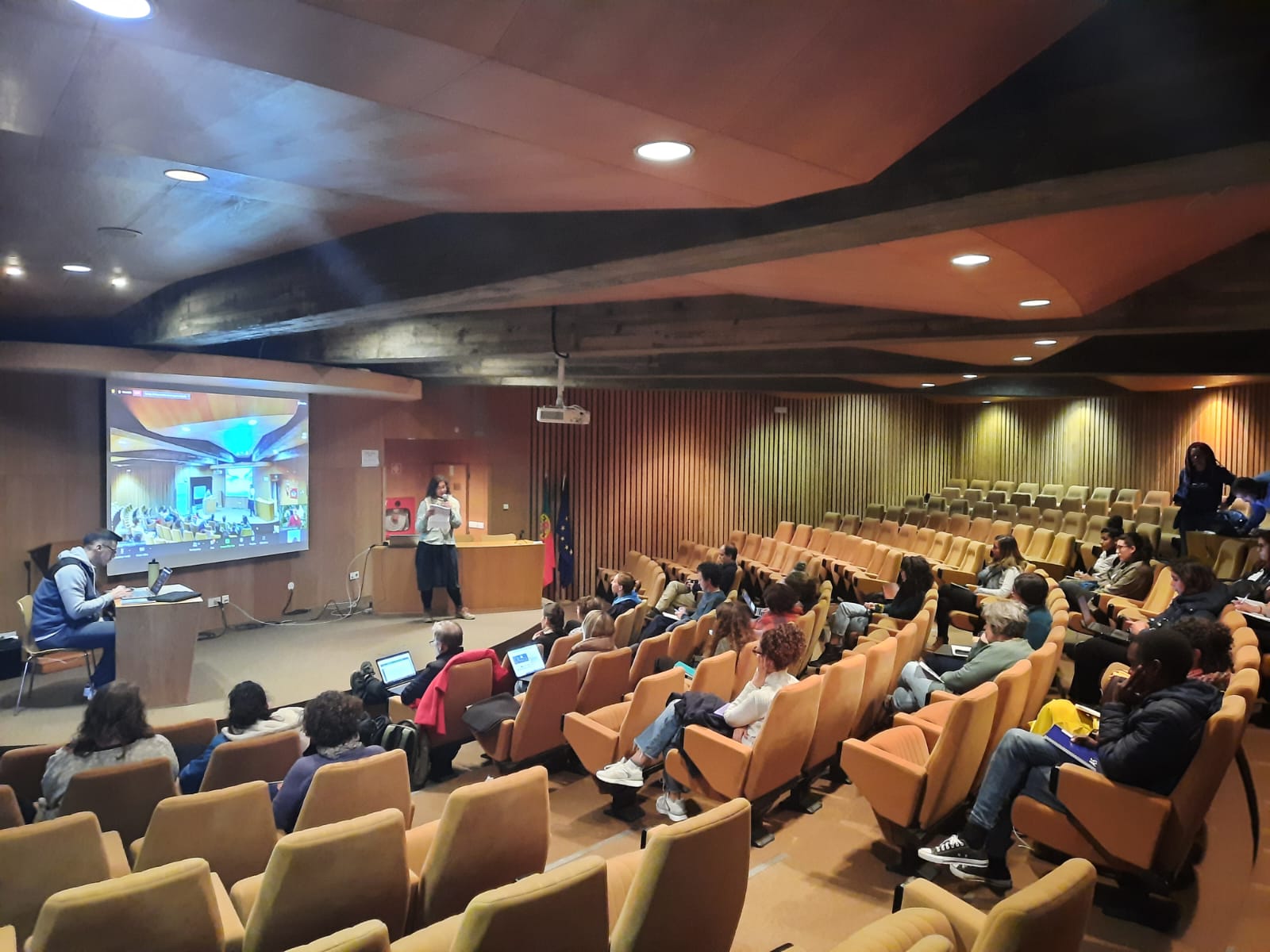
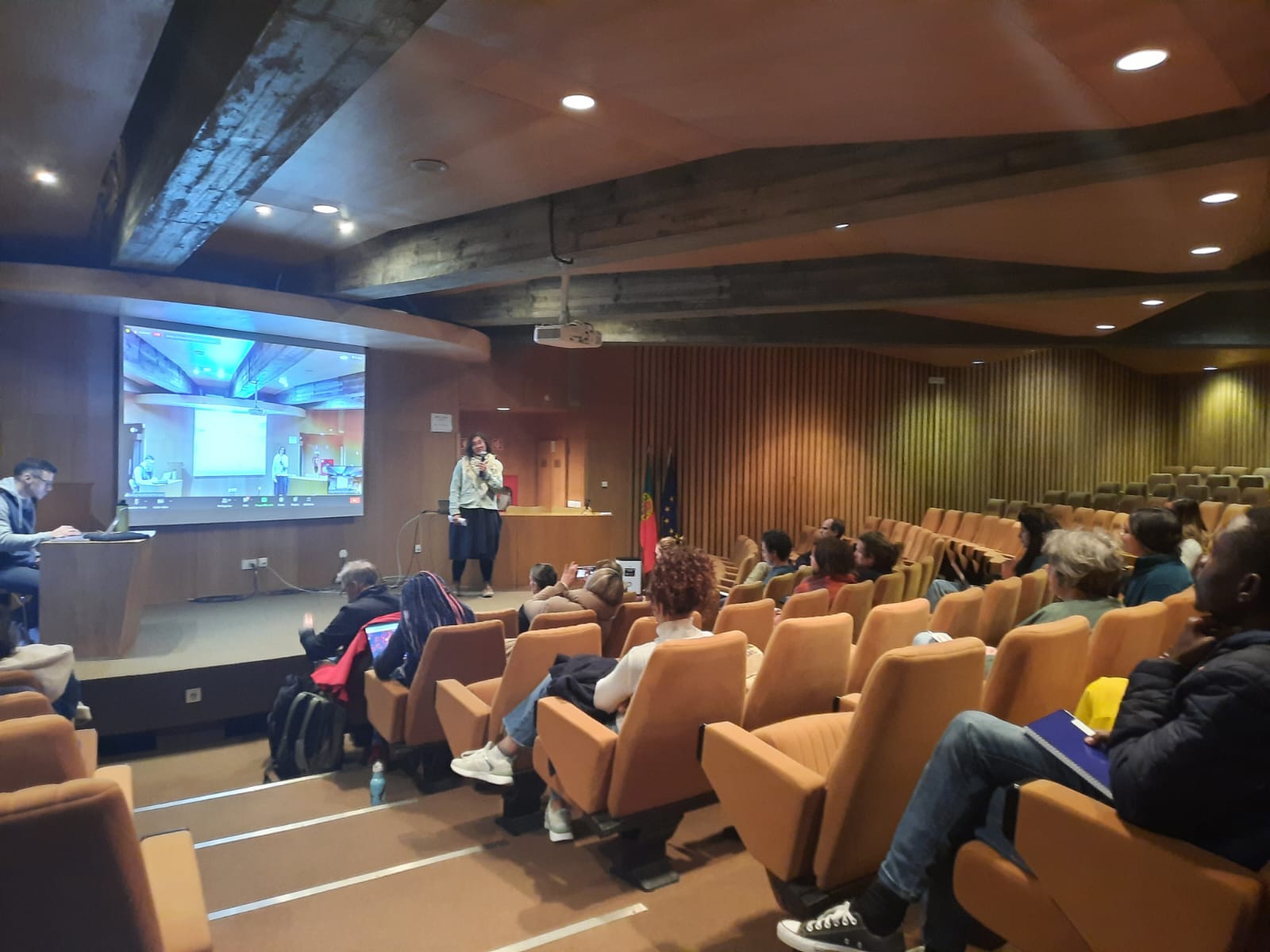
Photos from the CIBIO´s auditorium.
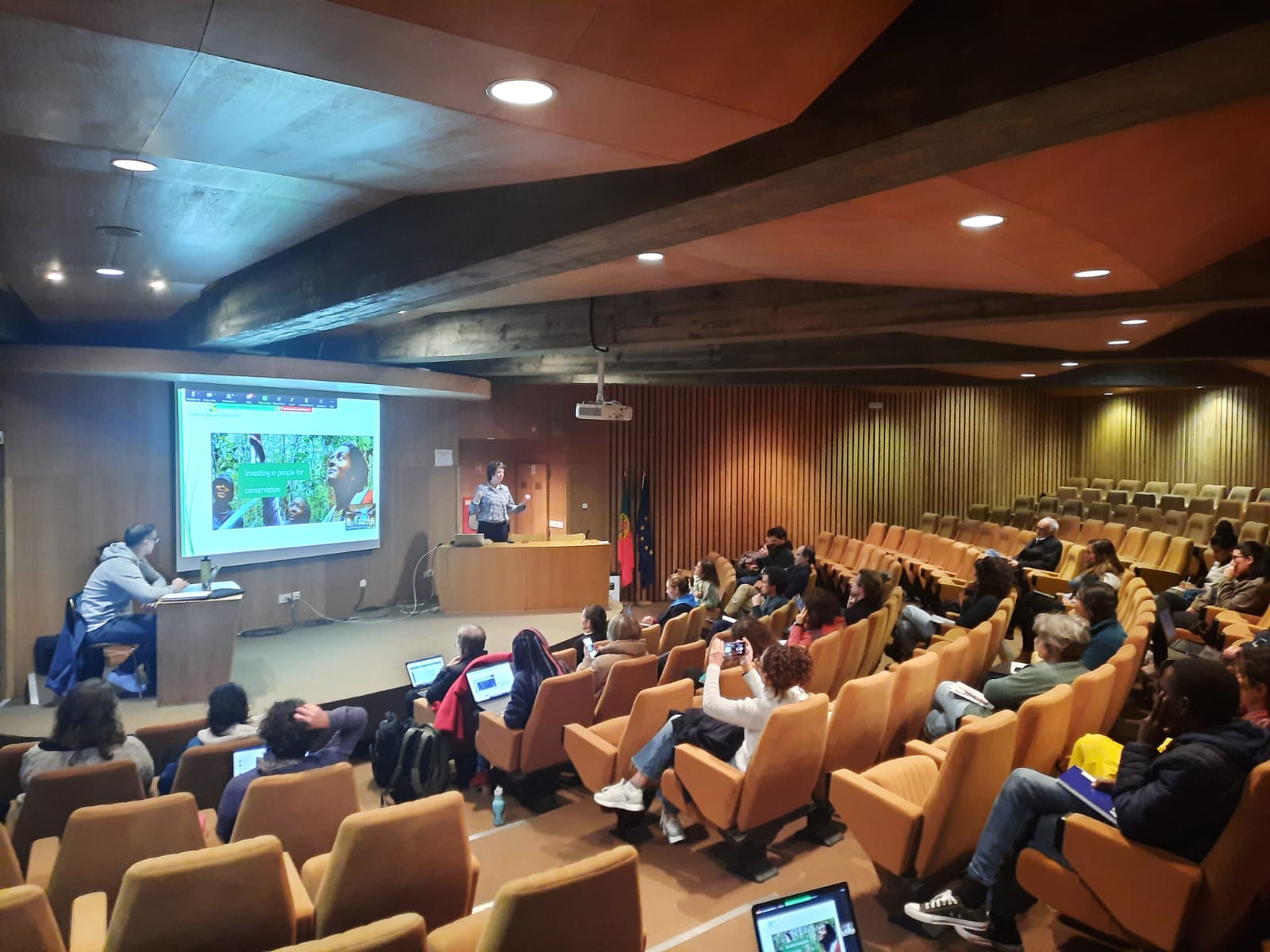
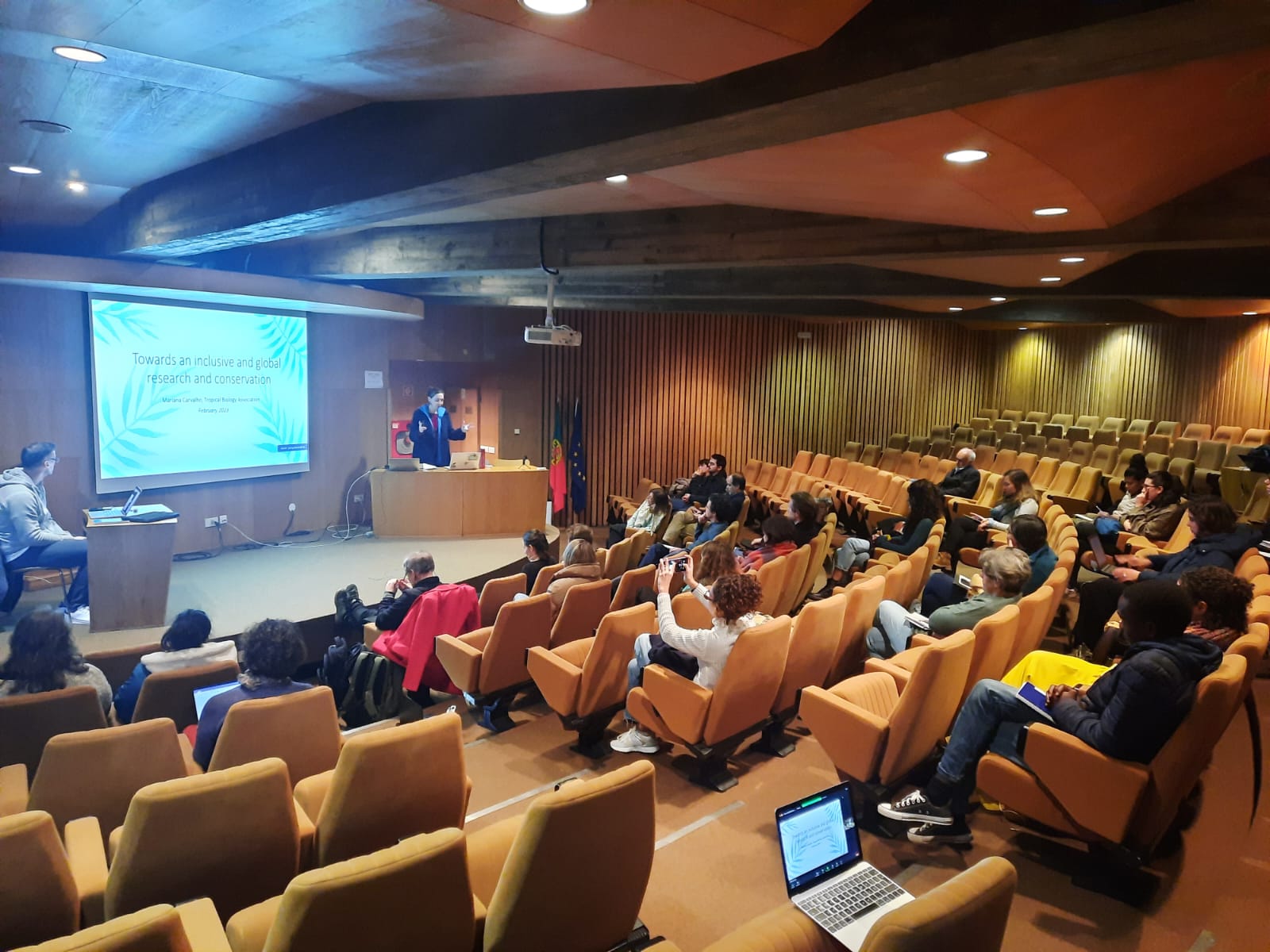
Photos from the CIBIO´s auditorium.
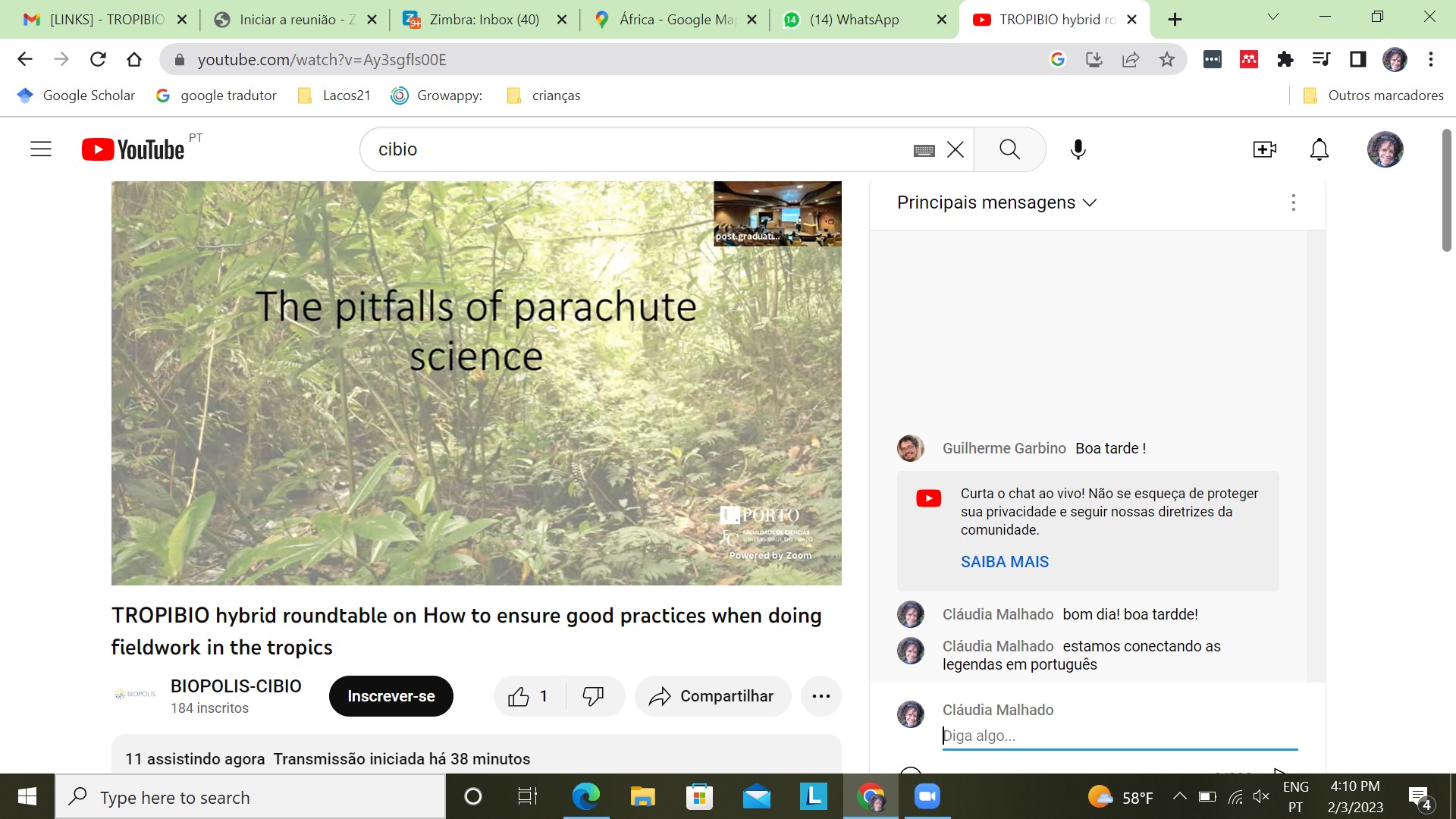
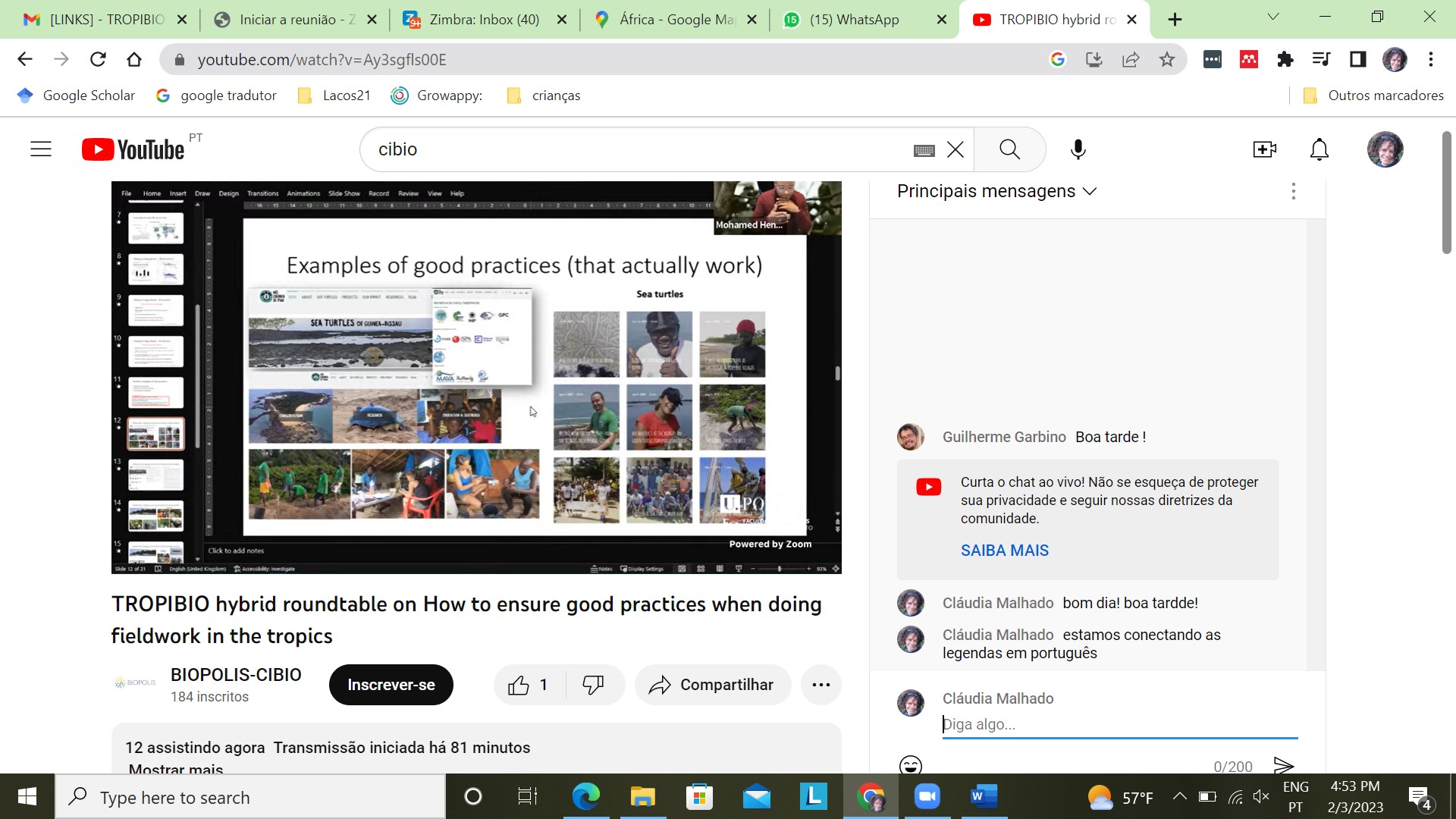
Photos from the streaming on Youtube.
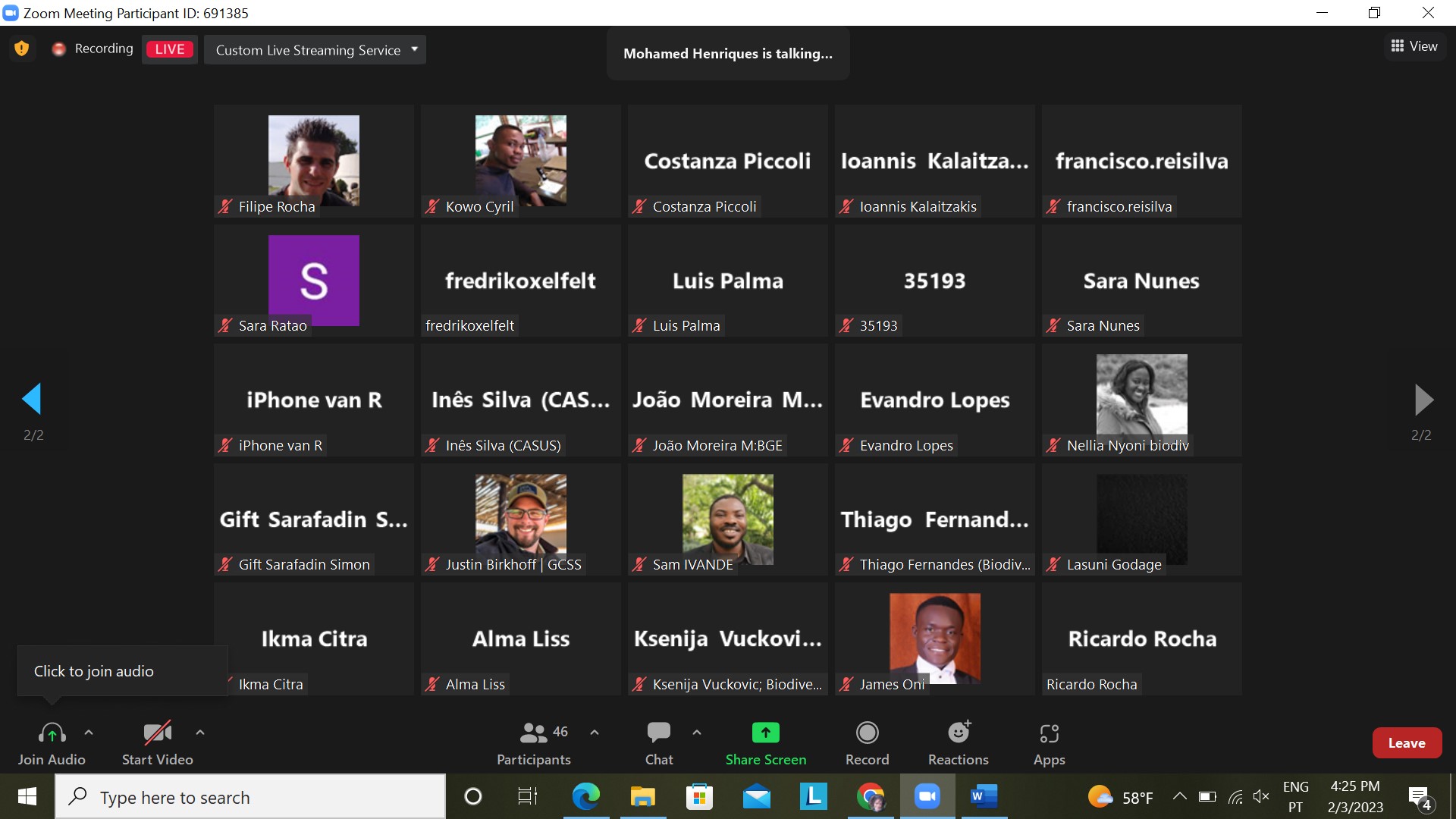
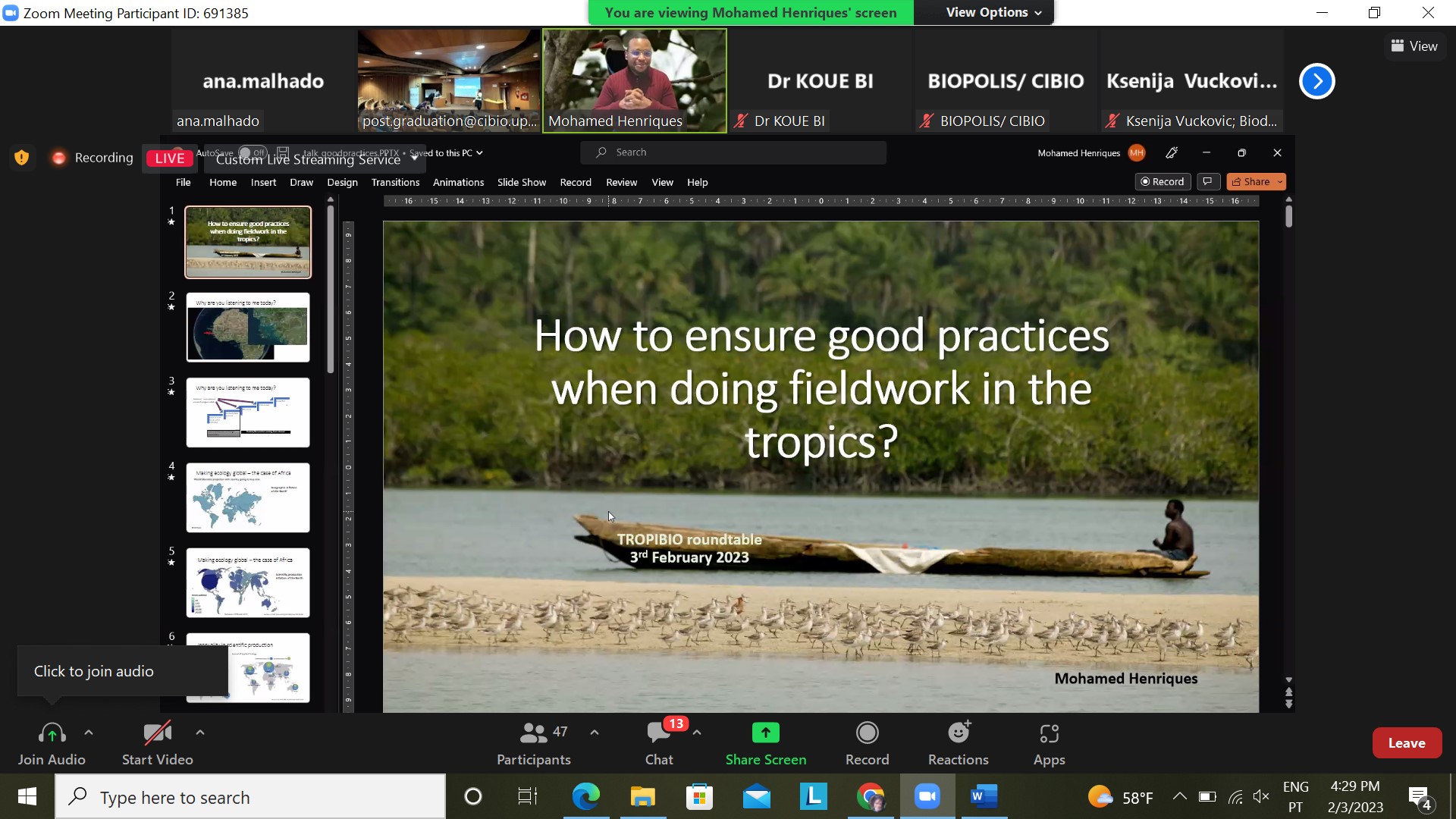
Photos from some participants online and from the presentations.
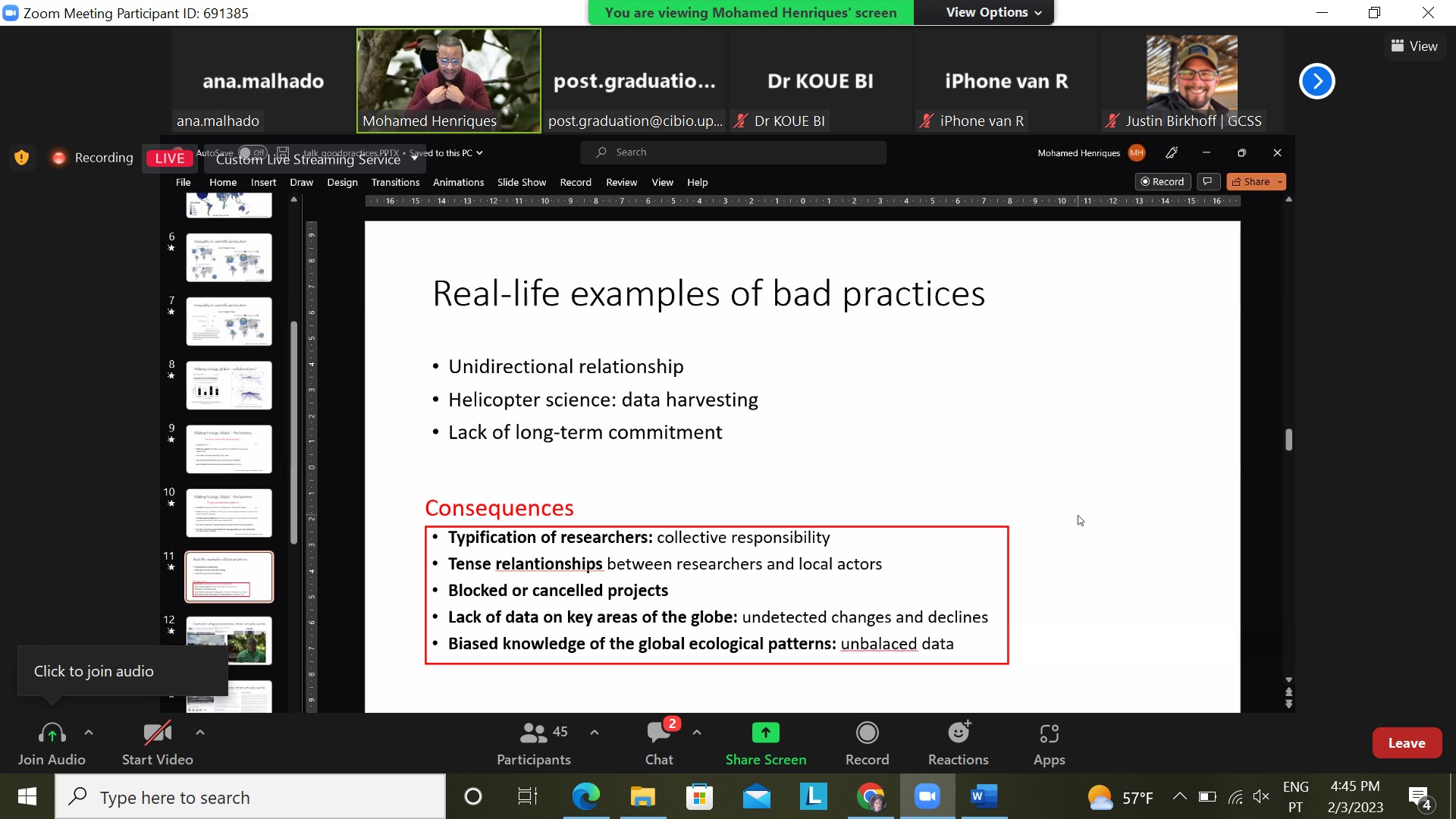
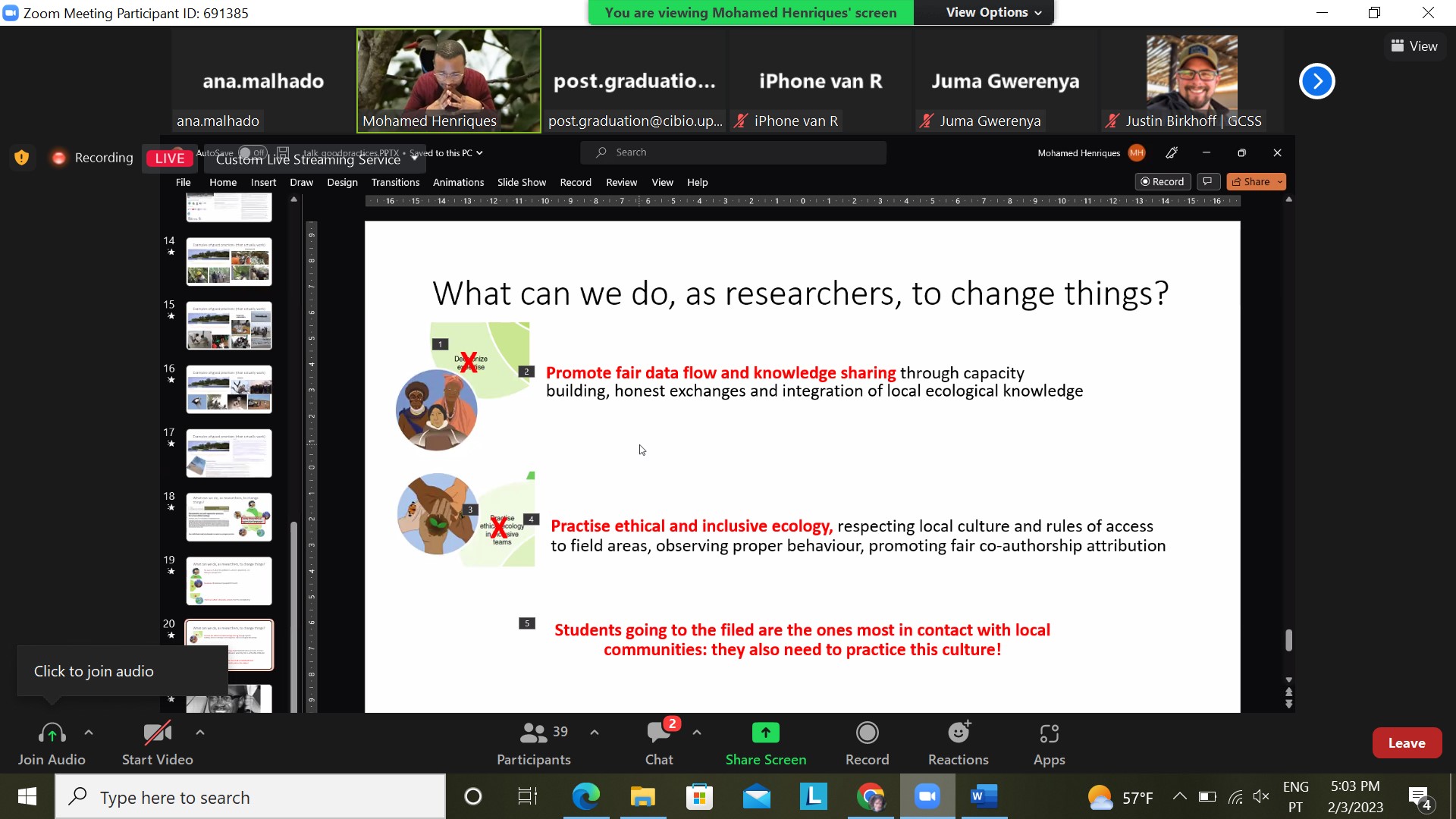
Photos from the online streaming.
Watch the video here.


Photos from the CIBIO´s auditorium.


Photos from the CIBIO´s auditorium.


Photos from the streaming on Youtube.


Photos from some participants online and from the presentations.


Photos from the online streaming.